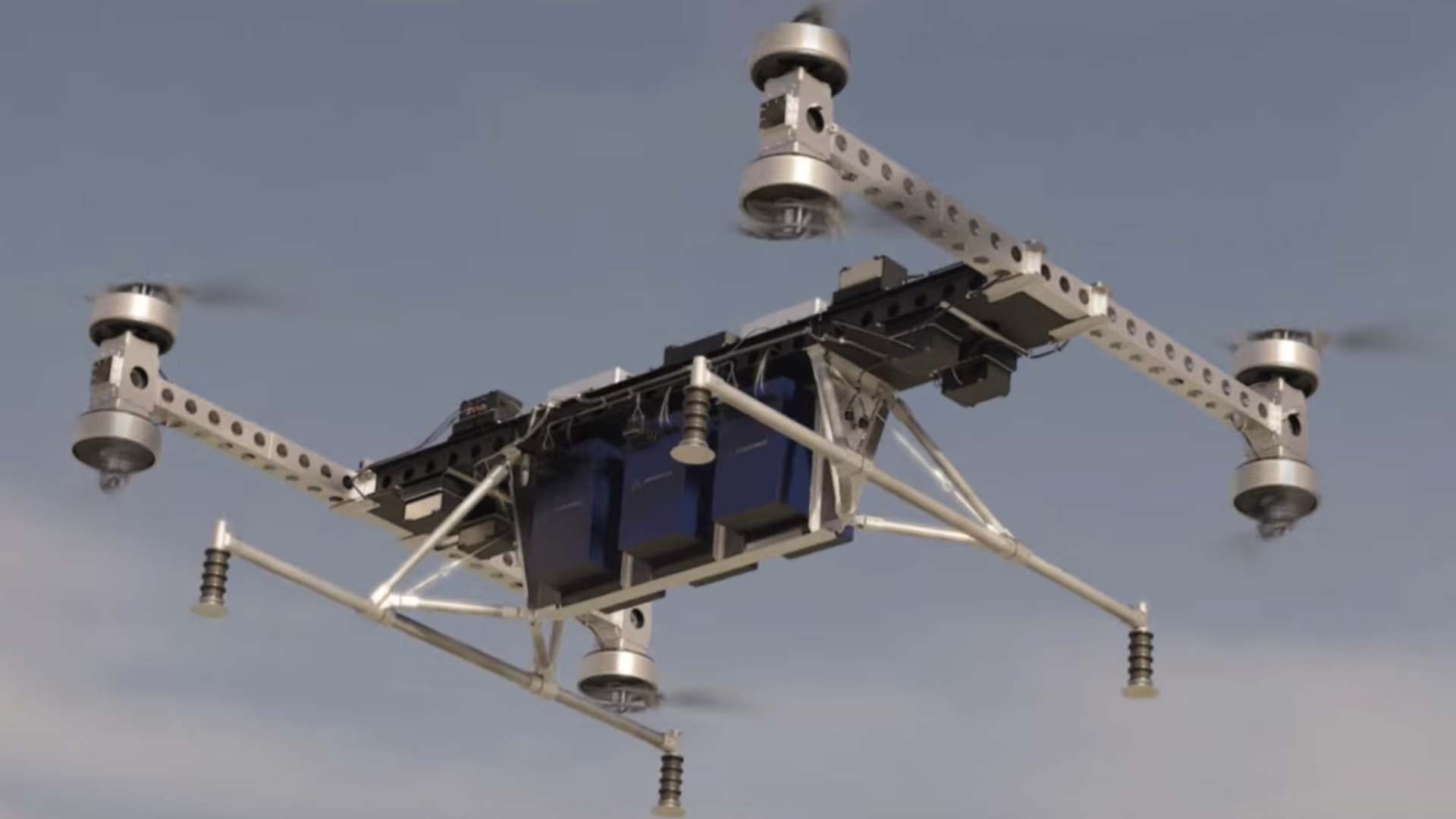

On Wednesday, Boeing published a video unveiling what its drone division has been working on for the past three months—a cargo drone capable of carrying payloads up to 500 pounds. While we’ve seen cargo drones capable of carrying more—such as the Aluminum Falcon or China’s AT200, capable of transporting up to 1.5 tons—Boeing’s unmanned aerial vehicle (UAV) is an octocopter. It’s capable of vertical take-off and landing, or VTOL, and sets it apart as a far more sophisticated prototype than much of what has come before in the modern cargo-drone arena. I think it’s pretty safe to say we now know why Boeing bought Aurora Flight Sciences last October.
According to TechCrunch, the current model weighs 747 pounds and has dimensions of 15 feet long, 18 feet wide, and a 4 feet height. This is a fairly large delivery drone that requires eight propellers to do its aerial bidding. Regarding the tech behind this UAV, perhaps most revealing are David Neely’s comments in the promotion video Boeing released yesterday. Neely works at Boeing’s Research & Technology division and provides some of the more technical information here, while others warmly praise Boeing and are genuinely grateful have the jobs they do. Let’s take a look at this fully electric cargo drone, shall we?

Pretty impressive, right? According to Neely, the batteries employed in this cargo-drone are Boeing’s own, and specifically designed to withstand the duress this UAV will have to endure in order to carry hundreds of pounds for long distances. Regarding these distances, Neely claims that payloads between 250 and 500 pounds will be able to be transported for distances between 10 and 20 miles. According to TechCrunch, Boeing just successfully tested the drone at Boeing’s research lab in Missouri. These are highly promising developments regarding the future of nationwide drone delivery, and the limits we’re continuously pushing forward.
Reportedly, Boeing’s chief technology officer Greg Hyslop is confident that this particular cargo-drone is a highly significant step toward improving the way we manage the transportation of goods. He said, “This flying cargo air vehicle represents another major step in our Boeing eVTOL strategy. We have an opportunity to really change air travel and transport, and we’ll look back on this day as a major step in that journey.” While we can’t wait to see this thing become the new standard, and replace these noise-polluting trucks barreling through residential areas on a daily basis, we have a long way to go. Drone delivery isn’t here yet, but it’s great to see Boeing prepare for it by the cargo-load.